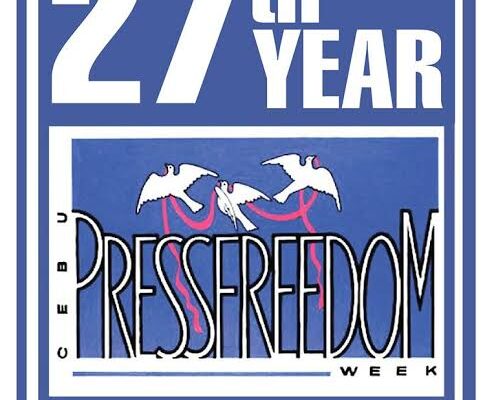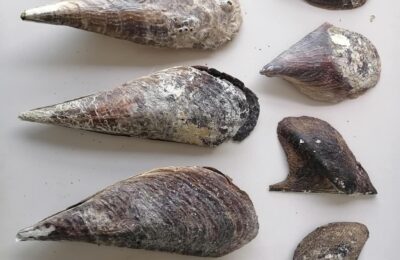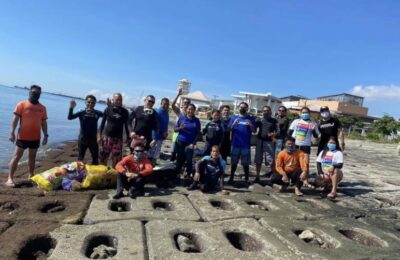The publication of an October 16, 2024 news report saying marine biologists from the Cebu Technological…
Law protecting press now covers radio, TV, online
The Sotto Law or Republic Act No. 53, a piece of legislation enacted in 1946 to protect newspaper people from being arbitrarily forced to name their sources by the irate subject of stories, now protects all journalists.
The expanded protection is contained in Republic Act 11458, which President Rodrigo Duterte signed on Aug. 30, 2019. A copy of the measure was released to the Official Gazette only on Tuesday, Sept. 23.
“Without prejudice to his liability under the [sic] civil and criminal laws,” now covered by protection are journalists from “broadcast, wire service organization, or electronic mass media, including cable TV and its variants.”
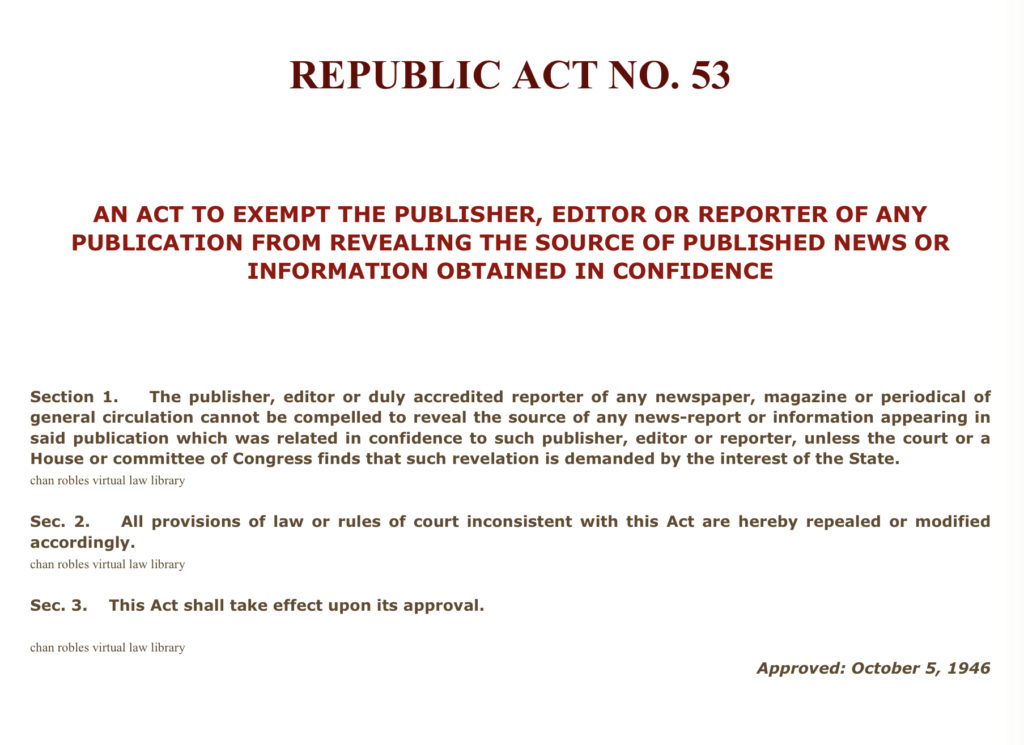
They all “cannot be compelled to reveal the sources of any news item, report or information appearing or being reported or disseminated through said media, which was related in confidence to the above mentioned media practitioner.”
The exception is when revealing the source is “demanded by the security of the State”, as discerned by the Supreme Court, the House of Representatives, or the Senate, or any committee of congress
“The coverage is as wide as it can be, more than most of media expected,” noted Cebu Citizens-Press Council (CCPC) Executive Director Pachico A. Seares in a statement emailed to media outlets.
Press freedom issues
Seares and the CCPC has been pushing for the amendment through lobby-work with legislators since the CCPC was founded in 2005, with success only coming now.
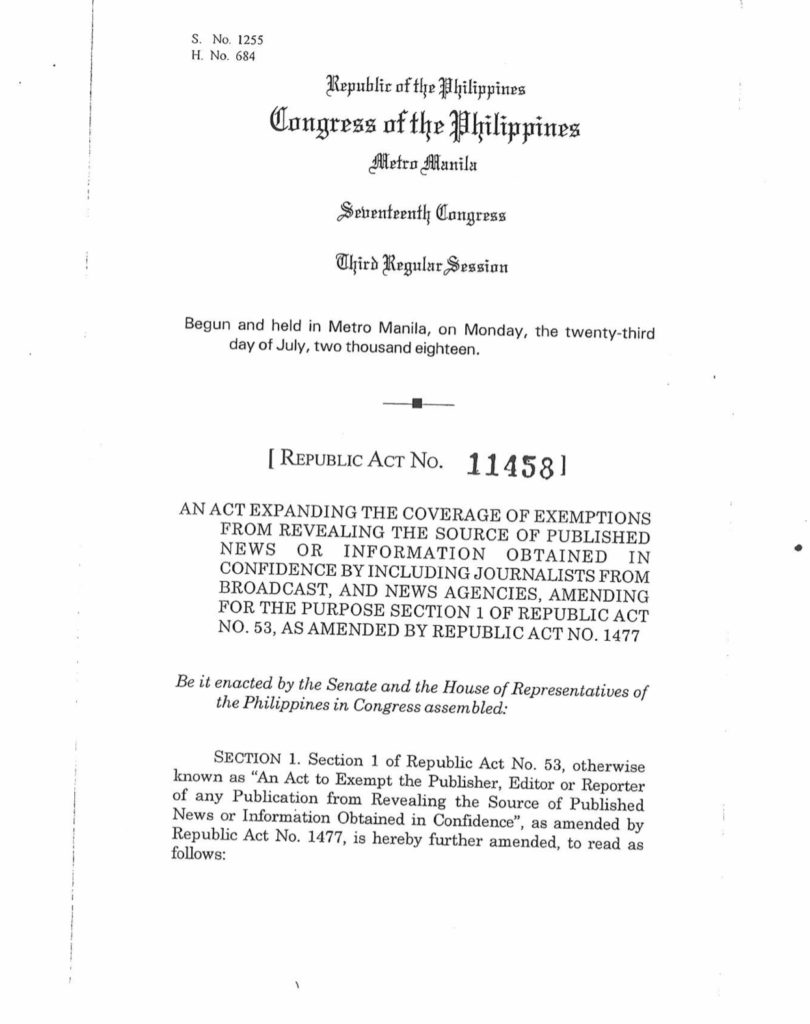
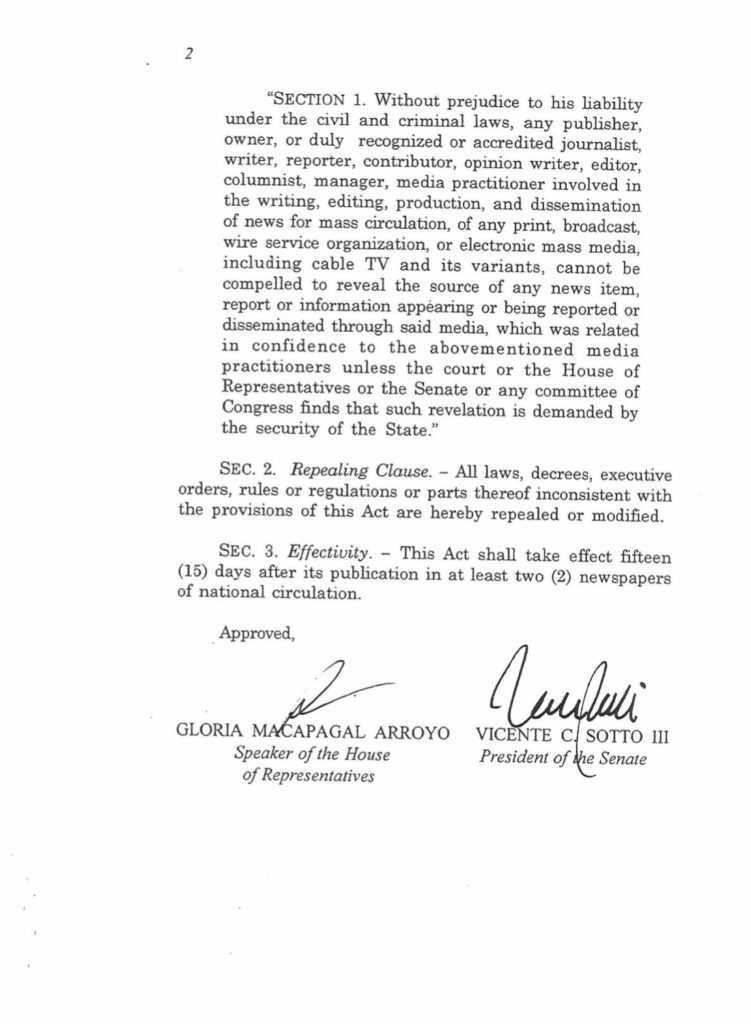
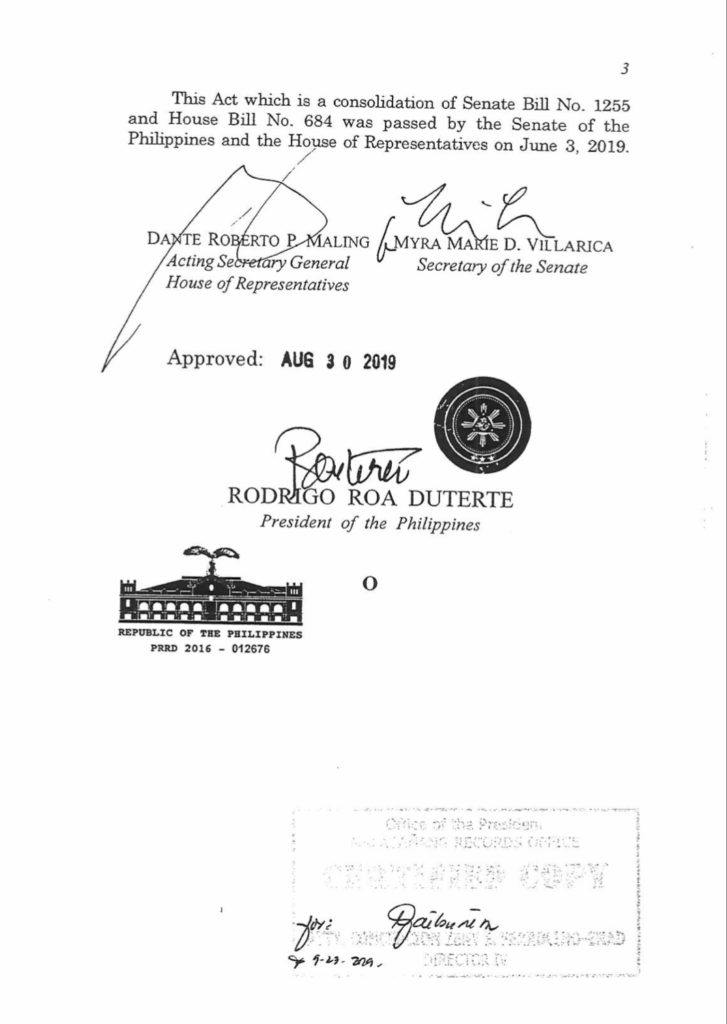
The council’s main ally has been Rep. Raul del Mar, who originally filed the house bill that would later become the law in 2005, during the 13th Congress. When congress adjourned with no action on the bill, he filed it again when the next one convened. This process was repeated five more times in 13 years.
In fact, during its En Banc meeting last Sept. 19, on the occasion of the 27th year of the Cebu Press Freedom Week and unaware that action had already taken place, CCPC passed a resolution asking the President to finally pass the measure.
It also asked similar action on another pending bill which seeks to stop the practice of irate public officials filing libel complaints against journalists in far-flung areas instead of the prosecution service that has jurisdiction over their place of work or the place where the allegedly libelous material was published.
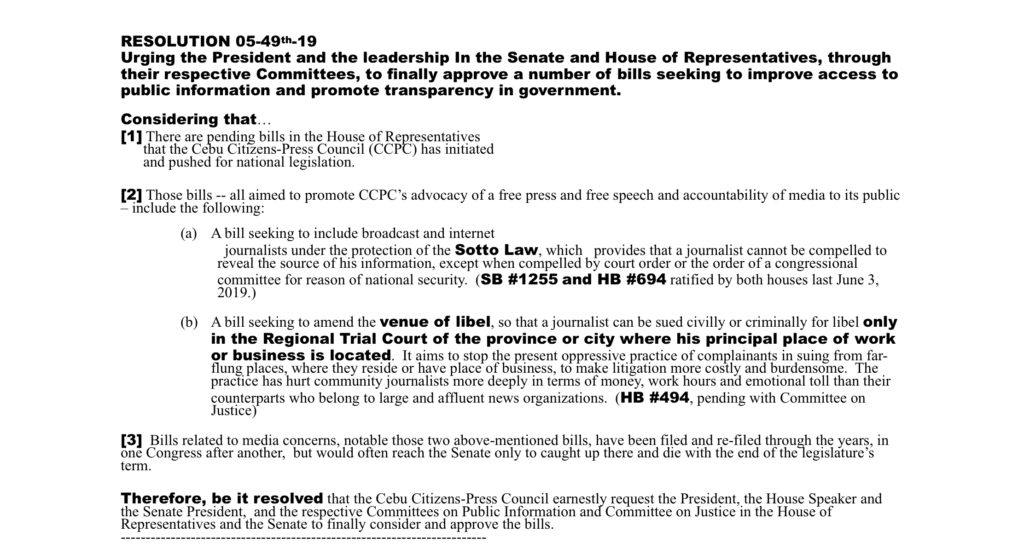
During the Sept. 19 meeting, a separate resolution was passed thanking Del Mar for his efforts.
Challenged
Although eventually passing into law, the deliberation by the present 18th Congress on what would eventually become RA 11458 was not smooth as well.
After the del Mar bill hurdled third and final reading at the lower house, the senate crafted its own version of the bill and a bicameral conference committee had to be instituted to harmonize contrasting provisions.
There was initial fear that journalists covering for stand-alone online platforms would be excluded from protection.
The term online platform does not, in fact, appear in the title of the new law: “An act expanding the coverage of exemptions from revealing the sources of published news or information obtained in confidence by including journalists from broadcast and news agencies, amending for the purpose Section 1 of Republic Act No. 53, as amended by Republic Act no. 1477.”
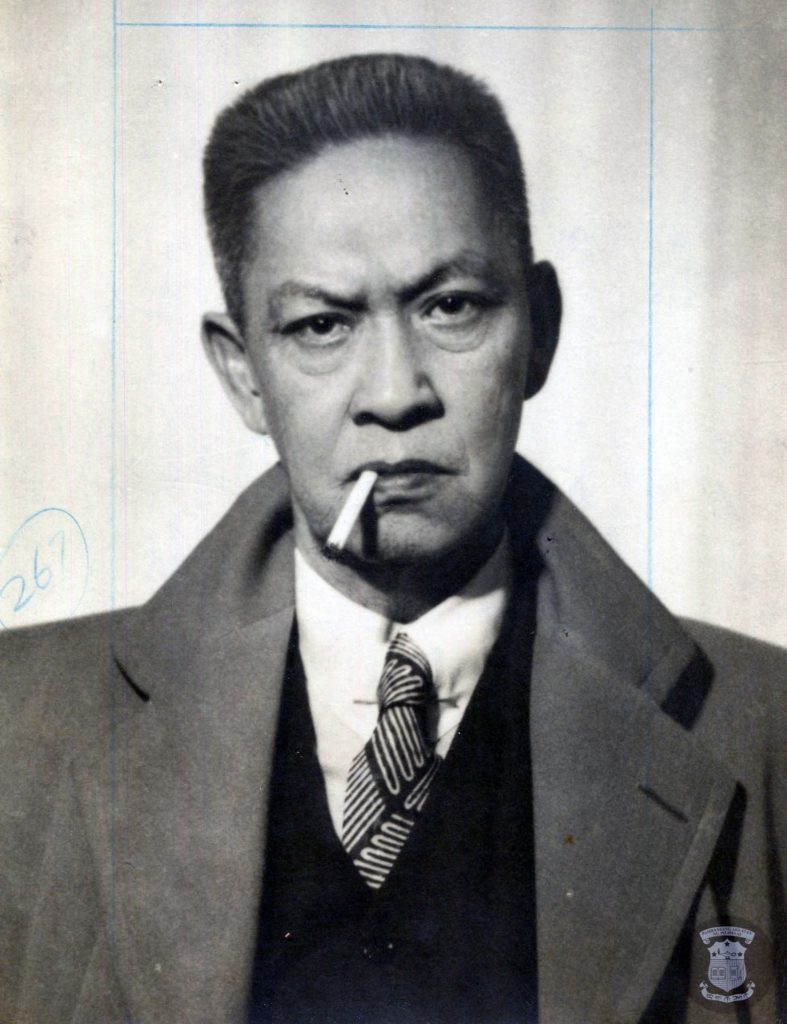
The original Republic Act No. 53 was passed into law in 1946 upon the sponsorship of then journalist and senator Vicente Sotto (1877-1950).
Born and raised in Cebu, Sotto published and wrote for Cebu’s first newspaper, La Justicia, in 1899, as well as Cebu’s first local-language newspaper, Ang Suga, in 1900, against a backdrop of Americans taking over from where the Spaniards had left off.
At one point the American administration shut down his paper and ordered his detention at Fort San Pedro. Following that, he began writing under the pen name Taga Kotta.
Sotto is known as the father of Cebuano language and letters and the former Southern Island Hospital was renamed the present Vicente Sotto Memorial Medical Center in 1992 in his honor.
Sotto is also the grandfather of incumbent senator and senate president Vicente “Tito” Sotto III who is remembered for inserting the libel provision on the anti-cyber crimes law, giving the crime of libel as defined under the Revised Penal Code a significantly higher penalty if committed through an online platform.

